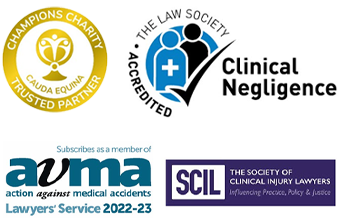The number of stillbirths is to be halved by 2030 under new plans unveiled by Health Secretary Jeremy Hunt.
According to the medical journal The Lancet, four in every 1,000 babies are stillborn each year in the UK.
The publication calculated that Britain’s stillbirth rate is amongst the worst in the developed world, ranking 33rd out of 35.
This poor safety record, which Mr Hunt described as “deeply troubling”, also leads to preventable maternal deaths, neo-natal deaths and catastrophic brain injuries.
In an attempt to improve maternity care, a central £4m fund has been created. This will be spent on digital monitoring equipment and staff training.
Data outlining the performance of maternity units will also be published online for the public to view. This will enable patients to make informed decisions about their care.
Interventions to improve safety
The plans are based upon a system in Sweden, where medical practitioners focus upon interventions to improve safety.
It is hoped the number of deaths and catastrophic injuries will decrease by 50 per cent by 2030.
The plans could also reduce the amount of compensation paid by the NHS.
Last year, more than £1bn was awarded to families whose baby died or sustained severe brain injuries.
In total there were 1,300 cases relating to stillbirths, neonatal deaths or catastrophic brain injuries. One in four claims arose because medical practitioners failed to monitor the baby’s heart rate.
Incidents “could be avoided”
Mr Hunt said: “This country’s stillbirth outcomes compared internationally are deeply troubling – and it means that too many families experience agony at what should be amongst the best moments of their lives.”
“I am determined that we do much better – to ensure that England is one of the safest places in the world to have a baby.”
Dr David Richmond, President of the Royal College of Obstetricians and Gynaecologists, said: “We support this initiative and our important role in it as leaders of the profession.”
“Good progress has been made but the fact is many of these incidents could be avoided with improvements to the care women and their babies receive.”
Medical negligence advice
If you, your partner or your child was harmed because of medical error, please contact us for expert legal advice.
Share Article With:

|

|

|

|

|

|



